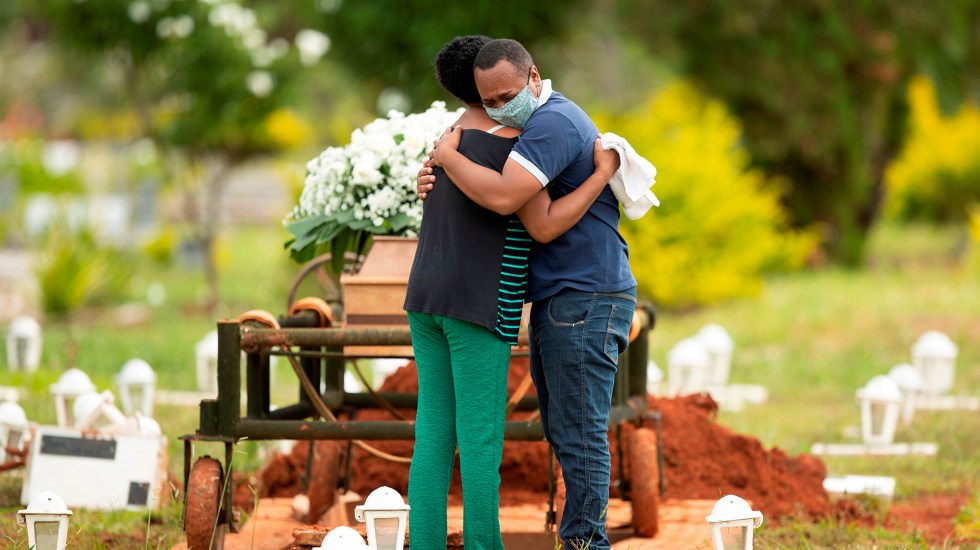RIO DE JANEIRO, BRAZIL – Although much of the attention on the pandemic is focused on India, the World Health Organization (WHO) today alerted on the advance of Covid-19 in Latin America, where many countries are reaching peak levels of daily cases. In contrast, vaccines have not yet reached many countries.
OUTBREAKS IN THE ANDES AND THE SOUTHERN CONE
“Peru, Ecuador, Bolivia, Argentina, Uruguay, and Guyana are experiencing new peaks of transmission, with a dramatic increase in infections, and their health systems are overwhelmed,” warned the Pan American Health Organization’s (PAHO) Director of Health Emergencies, Ciro Ugarte.

Moreover, “in Colombia, infections could soon reach January’s record levels, and ICUs and hospitals are reaching their limits in cities like Bogotá and Medellín,” added the expert from the World Health Organization’s American branch.
At a press conference with World Health Organization (WHO) Director General Tedros Adhanom Ghebreyesus, the Peruvian expert added that since the start of 2021, Latin America has seen an increase in the incidence of Covid-19 in younger age groups, as vaccine shortages make it necessary to prioritize the elderly and health care workers.
“The outlook is very worrying for Latin America: our countries are on many battlefronts because there is a challenge in securing more vaccines in a context of enormous economic crisis and stress on the healthcare system,” said Ugarte.
PAHO’s deputy director of emergencies, Sylvain Aldighieri, added that one of the factors behind the advance of the pandemic in the region has been the relaxation of prevention measures in recent months, coinciding with major holiday periods such as Christmas, Carnival, and Easter.
Therefore, “the most important thing now is a strict implementation of public health and social measures,” said the expert, referring to the use of masks, the maintenance of personal distance in public places, or avoiding crowded places.
30 MILLION CASES, ALMOST HALF IN BRAZIL
During the pandemic, Latin America has registered some 30 million Covid-19 cases and more than 900,000 deaths from the disease. Brazil is the most affected country in the region, with 14 million cases and almost 400,000 deaths.
Brazilian Health Minister Marcelo Queiroga today attended the WHO/PAHO press conference to emphasize that the Brazilian government is working mainly on stepping up the vaccination campaign to ensure that the entire Brazilian population is vaccinated before the end of the year.
Queiroga highlighted that the country has managed to administer up to 1.7 million anti-covid vaccines on some days. However, “there is still a lot to do” since the challenge to achieve the year-end target is to reach 2.4 million per day.
Director General Tedros added that, despite the serious numbers of infections and deaths, over the past 4 weeks, Brazil has managed to reduce the number of new cases, hospitalizations, and deaths, and pointed out that countries such as Spain and Portugal have helped the country with medical equipment donations.
On vaccination in Latin America, Ugarte pointed out that although the region has been provided with some 7.3 million doses in donations from the COVAX platform (organized by the WHO), the needs in the region are still considerable since “many countries are unable to sign bilateral agreements” with pharmaceutical companies.
“Some of them are desperately looking for means to acquire vaccines, but the availability of doses in the current context is not much” and is hampered by issues such as the large increase in cases in India (one of the main producers of doses), the expert pointed out.
He also stated that the countries registering the highest increase of cases in Latin America are the ones that should be prioritized in vaccine donations.
Source: efe

